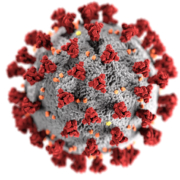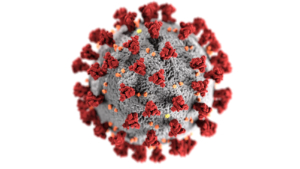Study highlights risk of new SARS-CoV-2 mutations emerging during chronic infection
SARS-CoV-2 mutations similar to those in the B1.1.7 UK variant could arise in cases of chronic infection, where treatment over an extended period can provide the virus multiple opportunities to evolve, say scientists.
Given that both vaccines and therapeutics are aimed at the spike protein, which we saw mutate in our patient, our study raises the worrying possibility that the virus could mutate to outwit our vaccines
Writing in Nature, a team led by Cambridge researchers report how they were able to observe SARS-CoV-2 mutating in the case of an immune-compromised patient treated with convalescent plasma. In particular, they saw the emergence of a key mutation also seen in the new variant that led to the UK being forced once again into strict lockdown, though there is no suggestion that the variant originated from this patient.
Using a synthetic version of the virus Spike protein created in the lab, the team showed that specific changes to its genetic code – the mutation seen in the B1.1.7 variant – made the virus twice as infectious on cells as the more common strain.
SARS-CoV-2, the virus that causes COVID-19, is a betacoronavirus. Its RNA – its genetic code – is comprised of a series of nucleotides. As the virus replicates itself, this code can be mis-transcribed, leading to errors, known as mutations. Coronaviruses have a relatively modest mutation rate at around 23 nucleotide substitutions per year.
Of particular concern are mutations that might change the structure of the ‘spike protein’, which sits on the surface of the virus, giving it its characteristic crown-like shape. The virus uses this protein to attach to the ACE2 receptor on the surface of the host’s cells, allowing it entry into the cells where it hijacks their machinery to allow it to replicate and spread throughout the body. Most of the current vaccines in use or being trialled target the spike protein and there is concern that mutations may affect the efficacy of these vaccines.
UK researchers within the Cambridge-led COVID-19 Genomics UK (COG-UK) Consortium have identified a particular variant of the virus that includes important changes that appear to make it more infectious: the ΔH69/ΔV70 amino acid deletion in part of the spike protein is one of the key changes in this variant.
Although the ΔH69/ΔV70 deletion has been detected multiple times, until now, scientists had not seen them emerge within an individual. However, in a study published today in Nature, Cambridge researchers document how these mutations appeared in a COVID-19 patient admitted to Addenbrooke’s Hospital, part of Cambridge University Hospitals NHS Foundation Trust.
Reference:



